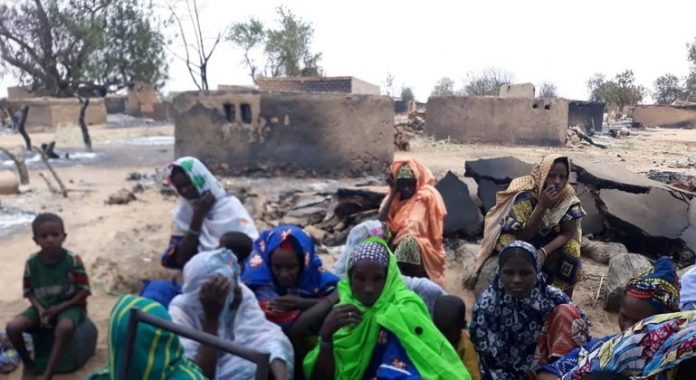With a USD 23 million contribution from Sweden and building on the expertise of the three UN agencies, the project will help improve the food and nutritional security of 144,800 people, particularly women and children. This objective will be achieved through sustainable agriculture support, creation, and rehabilitation of community assets, such as developing hallows for fish, production by communities of improved stoves and fuel briquettes made from plant and animal waste, and improved access to water and health services.
Multisectoral approach
“Strengthening resilience for food security and nutrition for the most vulnerable people requires a multisectoral and integrated approach. In this project our multi-year partnership with the three UN-agencies will enable addressing the underlying causes of vulnerability and contribute to sustainable and nutritious food systems. In addition, this is an important project that addresses the six thematic perspectives of Sweden development cooperation: poverty reduction, human rights, gender equality, conflict-sensitivity, environment, climate change and resilience,” informed Richard Bomboma, Head of Cooperation for Sweden in Mali.
The local communities of Segou (Barouéli circle) and Sikasso (Bougouni and Sikasso circles) are among the main actors of this project. They will directly be involved in implementing, and monitoring project activities and will also be equipped and sensitized on good nutrition and hygiene practices. Emphasis is put on the active participation of women.
FAO, WFP and UNICEF
“FAO is committed with all partners to support project beneficiaries to strengthen their resilience, preserve natural resources and biodiversity affected by climate change. We will jointly use the tools to enhance social cohesion and reduce conflicts within agricultural activities to achieve a better productivity, a better environment, better nutrition and better living conditions for the beneficiaries of this project” said Mansour N’Diaye, FAO Representative in Mali.
“This programme places particular emphasis on children and young people, and the involvement and active participation of women. We look forward to seeing an improvement in people’s ability to prepare, prevent and respond to the impact of crisis and shocks, including climate change, to ensure a better future for every girl and every boy. Sweden is a key partner of UNICEF in Mali, and we are delighted to continue to strengthen our partnership. By coming together, we can maximize our impact for the people of Mali. The complementary expertise and experience of the three UN agencies will ensure that long-term impact is strong and solid”, said Sylvie FOUET, UNICEF’s Representative in Mali.
“Our common priority is to work with communities, including those displaced by conflict, to enable them to have sustainable access to safe and nutritious food. This includes programmes offering food or cash in exchange for work to build assets that will benefit the whole community and the development of nutrition related activities, in a complementary manner with sister agencies UNICEF and FAO,” stated Sally HAYDOCK, WFP Representative and Director in Mali.




